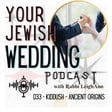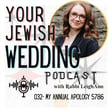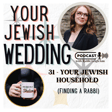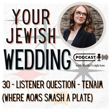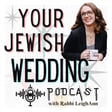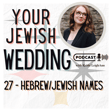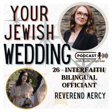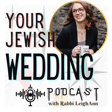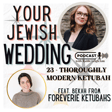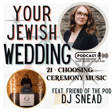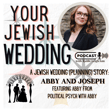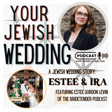
4 - "But We're Not Religious!"
"But Rabbi, we're not religious! Do we have any business planning a Jewish wedding ceremony?"
Yep. For SURE. (What, you thought I'd be unbiased?)
In this episode, we'll dive into common reasons that non-religious/spiritual couples give for why they can't/shouldn't have a Jewish ceremony.
- Not believing in Gd
- Lack of Jewish knowledge, especially about Jewish weddings
- Feeling weird about Hebrew
- Not wanting to disrespect the future spouse's religion/family
- Feeling like an outsider to Judaism
- Really, super duper NOT believing in Gd.
Yep. We're tackling it all.
Anita Diamant's book mentioned in the show:
https://anitadiamant.com/books/the-jewish-wedding-now/
Don't forget - you can reach me any time at www.yourohiorabbi.com. Fill out the contact form there if you'd like to work with me on your wedding.
IG: @yourohiorabbi
Send questions for me to answer on this podcast to:
yourjewishweddingpodcast@gmail.com
Hope to see you next time! Remember - there is ALWAYS more learning to do!
<3 Rabbi LeighAnn
